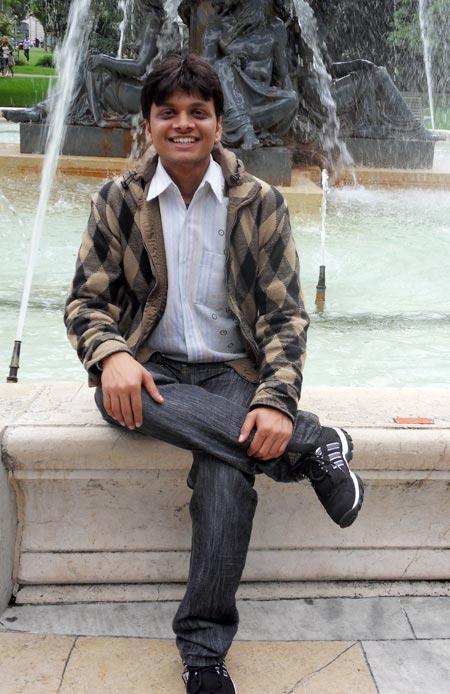| |  |  |
The first part of a special series on the Rhodes Scholars 2011.
Amit Kumar always knew he would have to struggle to achieve his dreams.
Growing up in a family that comprised his father, a railway employee, his mother, a homemaker, and two younger siblings, Amit -- a native of Saharsa, a small town in Bihar -- never thought of studying at IIT -- or becoming a Rhodes Scholar, like Bill Clinton, one day.
"Despite the hardships," emphasises Amit, "my parents never let the lack of money come in the way of our education."
Amit, who is currently pursuing his final year degree in mechanical engineering as part of a five-year integrated programme at IIT-Roorkee, says his growing up years were filled with struggle. It was only because of funding from various scholarships that he could go the distance.
"My parents weren't so well educated. We faced financial problems. We were five members in the family and had to survive on a single source of livelihood. As we grew up, it became difficult to make ends meet as the cost of education got higher. We could not afford expensive coaching classes and had to make do with whatever little we could afford," he recalls.
Amit felt the educational ambience in Saharsa was not letting him spread his wings far. "The schools provide you with good education and there are occasional extra curricular activities like sports and music, but the exposure is very minimal," he says. "And if you want to be trained professionally, you have to bear extra costs, which in my case was unthinkable."
Amit knew the only way he could support his parents was by studying hard and securing good grades.
"Since I was the eldest in the family, I had to ensure I studied hard and got high scores so that I could seek admission in a good government-run engineering college, where we could find a way to afford the term fees. I knew if I scored low, there was no way my family could afford to send me to a private college," he says.
Amit realised the value of money and education at a very early age, and was empathetic towards students who faced a similar plight. Even after he entered college, he coached students who faced difficulty in their studies.
"Since I had been through a similar situation, I could understand that not many like me could afford to go to a coaching class to improve their grades. I tried my best to help students who came from poor economic backgrounds by guiding them whenever they faced difficulties."
next...

No comments:
Post a Comment